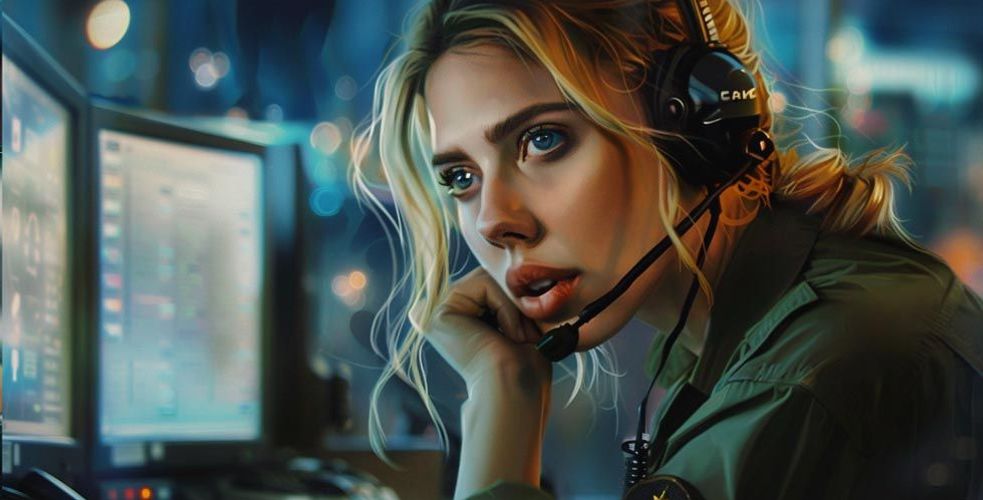After Don't Touch My Buddy, Don't Touch My Voice, by Scarlett Johansson

Famous American actress Scarlett Johansson was angered that OpenAI had, according to her, reproduced her voice to create Sky, one of ChatGPT's new voice personas.
The subject of voice morphing and voiceprinting is becoming increasingly important with the latest developments in artificial intelligence. After Joe Biden impersonations to discourage American voters from voting and telephone scams using the panicked voice of a loved one to extort money, Scarlett Johansson, the famous American actress, has now fallen victim to this emerging technology.
Dispute over the imitation of Scarlett Johansson's voice:
Following the announcement of GPT4-o and its voice features, Scarlett Johansson announced that OpenAI had knowingly copied her voice for one of ChatGPT's voice personalities, called Sky. OpenAI has issued a firm denial, but Sky has nevertheless been suspended, ‘out of respect’ according to its CEO Sam Altman. However, the unsuccessful attempt to hire Scarlett Johansson a few months earlier to lend her voice to Sky does not speak well for the creators of ChatGPT. Especially since Sam Altman tweeted a few days ago a simple ‘Her’, in explicit reference to the eponymous film in which Scarlett Johansson voices an artificial intelligence that becomes conscious. The actress said in a statement that she was shocked and questioned the legislative measures governing such cases.
The statement in question:
"Last September, I received an offer from Sam Altman who wanted to hire me to double the current ChatGPT 4.0. I could bridge the gap between tech and creatives, helping consumers feel more comfortable with the drastic changes that AI entails. Sam Altman said he thought my voice would be reassuring to the public.
After careful consideration and for personal reasons, I declined the offer. Nine months later, my friends, family and the public all noticed how similar the voice of the new system, called ‘Sky’, was to mine.
When I heard the demo, I was shocked, angry and confused that Mr Altman had chosen a voice so similar to mine that my loved ones and the media couldn't tell the difference. Mr Altman even implied that the similarity was intentional, tweeting a single word, ‘her’ – a reference to the film in which I voiced a conversation system, Samantha, who forms an intimate relationship with a human.
Two days before the ChatGPT 4.0 demo was released, Mr Altman contacted my agent, asking me to reconsider his offer. Before we could respond, the system was already out.
In response, I was forced to seek legal counsel, who wrote two letters to Mr Altman and OpenAI, detailing the facts and requesting the exact process used to create the ‘Sky’ voice. Subsequently, OpenAI reluctantly agreed to remove the ‘Sky’ voice.
In this era of deepfakes, where we are faced with protecting our identity and our work, I believe these issues deserve absolute clarity. I expect this conflict to be resolved with the utmost transparency and the passage of appropriate legislation to ensure that individual rights are protected.

To help you form your own opinion, here is a video comparing Scarlett Johansson in Her and Sky, one of the voices of GPT4-o.
Authenticating a person by their voice is an age-old issue:
Judges, police officers and lawyers representing traders involved in fraud (Kerviel) have long sought to identify the person behind a voice, to authenticate it and to prove that a conversation has not been altered. The admissibility as evidence of an old voice recording of Jérôme Cahuzac was, for example, at the heart of the debate during his trial for tax fraud in 2013. Is there such a thing as a voiceprint? This was already the question asked twenty years ago by French and British researchers. To be continued tomorrow.
Interview with Nathalie Henrich Bernardony, CNRS, La Baule. The voice is a gift of life.




